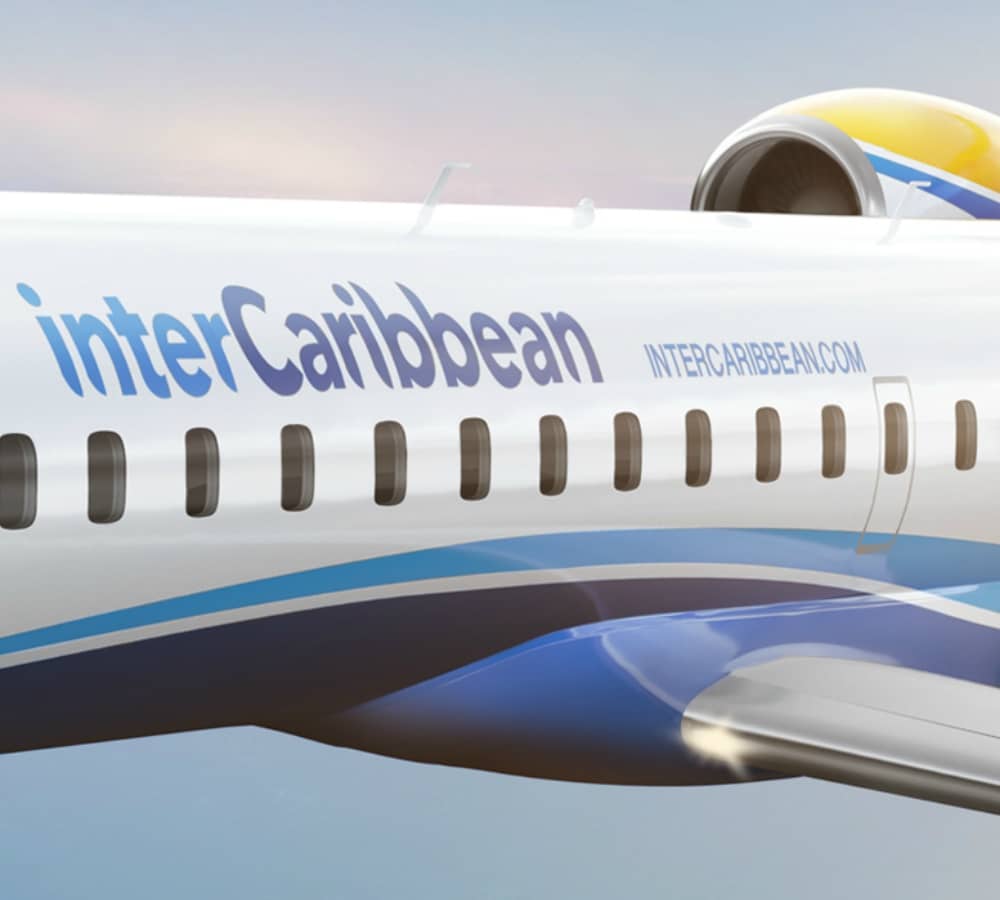
In a region desperate for solutions to its intra-regional travel woes, any respite found in a willing airline player should be welcomed and embraced. Not so for the proud people of the Eastern and Southern Caribbean, who had a long, storied, and complicated history with the region’s former premier public carrier.
Hailed as a “public good,” the former carrier – the now-defunct LIAT – was subsidised for decades by governments—some more so than others. Despite that, the embattled carrier folded in the early days of the COVID-19 pandemic. The people of the region were left scratching their heads for alternatives and seeking creative ways through international airlines, routes, and boats to get from place to place.
What many saw as an expedient measure and a temporary relief came in the form of a private carrier headquartered in Turks and Caicos, and one which had under its belt a record of over two decades effectively serving the travellers of the Northern and Western countries of the Caribbean, for whom access to travel options was a given fact of life. interCaribbean Airways landed in Barbados and the Eastern Caribbean in July of 2020, as air travel was tentatively resuming post-lockdown. Seizing the opportunity to position itself in a market left empty, interCaribbean piled on routes, assessed and leveraged interline partnerships, and set up shop to take advantage of what was on offer.
interCaribbean’s founder and chairman, Lyndon Gardiner, having singlehandedly built the airline from the ground up into a full-fledged operation dubbed the region’s largest private carrier, knew that the Eastern and Southern Caribbean markets would be a challenge.
interCaribbean’s founder and chairman Lyndon Gardiner.
Still, he welcomed it, doing what he built his brand on — seizing opportunities and focusing on hard work. Little did he envision that two years later, with each dollar lost and each criticism levelled, he was in a storm not of his own making but one he was determined to help solve.
For the first two years in the sub-region, criticisms were directed at interCaribbean Airways. The negative views were expressed and played out in public spaces and on social and traditional media, as the airline took a beating in the court of public opinion. Gardiner’s penchant for hard work, resilience, perseverance, and success initially proved no match for a people longing for the glory days of guaranteed air travel service from their former LIAT, whether or not it was late or almost empty.
Refocusing and redoubling his efforts in late 2022, Lyndon Gardiner began seeking engagements with governments and tourism bodies across the region, feeling them out to gauge the appetite for partnerships.
No doubt, Gardiner realised then that the people of the sub-region were more interested in their relationships with airlines and not just the business aspect. Their former carrier might not have been on time, but it was always there for them. They cared about their airline, and their airline had been there for them—on the backs of their governments—whichever ones were willing to pay to play. It was a political relationship based on patronage and heritage. They didn’t care if LIAT was constantly losing money—their tax dollars. They knew it was their airline, their public good, akin to their relationship with West Indies Cricket and the University of the West Indies system. It was that simple.
Accustomed as he was to the business end of the market in the Northern and Western Caribbean, the realisation that the South and East were not interested in economics but in partnerships must have been a shock to Gardiner and his team.
Fast forward to the start of 2023, and that shock must have been enough to jolt Gardiner into aggressive action. Following a series of announcements by the airline and several governments, and with a clear understanding that there was no further improvement in regional air travel service, Gardiner mounted a public relations campaign that saw him make several pronouncements backed by action.
Announcing upgrades to the airlines’ operations and outlining more efficient schedules and routes, he further awakened the region’s consciousness with the unexpected—and welcomed announcement that he was installing two newer aircraft solely to serve the sub-region.
Heeding the criticism of the aircraft infrastructure, interCaribbean Airways has since also announced that throughout 2023 it would be decommissioning all older aircraft and investing in newer ones to have a total of four newer aircraft operating in the sub-region by the end of the year.
Another promise made, and come March, when the first two plans land, will be halfway to delivery.
Among other enhancements, the airline is responding to critics of its less-than-desirable customer service operations by investing in technological upgrades and establishing sub-offices in regional hubs to better respond to and meet customers’ needs.
I contacted Gardiner to get his views and assessment on the last two years and the airline’s position. In his unassuming way and measured rationality, he mused on the privilege that it has been to expand into a new area and provide a necessary service. He quickly demurred from any reference to him having done the region a favour. For him, it is a dual partnership and even through all the difficult days, negative feedback, and the uphill tasks of negotiating his way through governments and other stakeholders, he has not lost his belief that he has been granted a tremendous opportunity, and he is determined to prove deserving.
As frustrating as it might have been at times to be disparaged constantly and publicly, Gardiner stated that he valued what he called “feedback.” He added, “interCaribbean has been at the forefront of regional air travel for over three decades. We did not get here overnight.
Our ability to grow while adapting to the needs of the people at whose pleasure we serve has been the major factor in keeping us out front, and we will continue working to earn their trust.”
The ensuing few months will reveal if Gardiner has made a successful gamble on his investment. Still, whatever the answer, Gardiner and his team have put their money and their efforts where their commitment is—and the people of the sub-region, impatient though we are, we do have an increasingly more viable option for air travel in interCaribbean Airways.
The sun is shining a little brighter over the shores of the Eastern Caribbean.
Advertise with the mоѕt vіѕіtеd nеwѕ ѕіtе іn Antigua!
We offer fully customizable and flexible digital marketing packages.
Contact us at [email protected]

















I wish them well. What they need is more planes to service more routes. LIAT had the planes and the routes serviced well daily and those are big shoes to fill. Caribbean Airlines is also acquiring more ATR planes to service more routes and expand in the region. I wish them well, as well. We need all of these extra planes to bring regional travel back to its former level. Unfortunately, it looks like LIAT will not survive as the regional governments are not willing to pay up to get it back to its former glory. Antigua cannot support LIAT financially on its own. That is just too much.
Caribbean people will soon realize that outsiders will not be willing to fly half empty planes on the less profitable routes. They will not be prepared to lose money. Liat serviced the islands whether full or half full on a regular basis with a number of daily flights. Those islands that are embracing an outside airline out of selfishness will soon realize that there is nothing like your own. But you must be prepared to make the investment.
I am just happy to see Air travel privatized. Government should not be involved; it led to disaster.
LIAT had many competitors who came and left. Because no one wants to pay the bill. Everyone knows the answer to the problem, but no one wants to take the bull by the horn. Antigua and Barbuda please continue doing what you think is right. Establish your own Airline. Subsidize the fares only for your people. The rest will have to pay the full price. And that is not discrimination. It’s taking care of your people. Because after all it is their taxes being used.
Comments are closed.